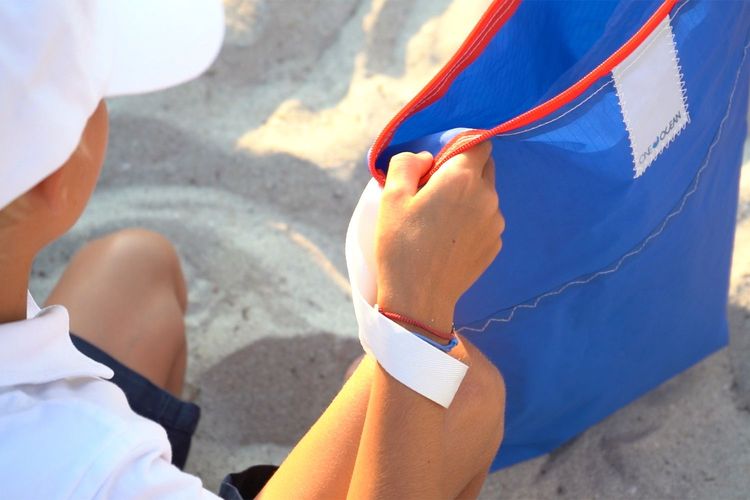No Plastic in the Ocean is One Ocean Foundation's project aimed at combating marine pollution from plastic and microplastics. The dual objectives of this project are to create awareness of the problem and to have a concrete impact by collecting plastic waste from marine and coastal areas.
The areas of intervention have been identified in developing countries, from where most of the plastic waste that threatens the ocean originates. Thanks to collaborations with local partners, the plastic is collected, tracked, and reintroduced into the production cycle, fostering the development of a circular economy.
The problem of plastic in the sea
Plastic is a useful, versatile material, but single-use items like bottles, packaging, and bags are a major threat. Despite being used for only minutes, less than 1% are recycled, while over 8 million tons end up in the ocean every year.
Plastic makes up more than 80% of ocean waste and takes centuries to degrade, breaking into micro and nano particles. These harm marine life, disrupt biodiversity, and can even enter our food chain.
In recent years, No Plastic in the Ocean has launched a series of initiatives that allowed One Ocean Foundation and its partners to remove tons of abandoned plastic from the environment. Here are some of our key actions:
Trash barrier in Bali
In collaboration with Sungai Watch, One Ocean Foundation installed a barrier in March 2023 that collects plastic waste from one of Bali's rivers. The barrier has been a great success, collecting 568 kg of waste in just one month. Waste barriers are strategically placed to prevent waste from
entering the ocean, while also raising awareness and informing local communities through educational campaigns.
The Sungai Watch team not only cleans and maintains the barriers but is also responsible for sorting the waste into different categories for data collection, upcycling, or recycling.
How is the waste managed?
- Phase 1: Collected trash is sorted and categorized into over 30 different categories.
- Phase 2: Data is recorded and analyzed.
- Phase 3: Trash is washed, shredded, and prepared for upcycling.
- Phase 4: The highest-quality plastics are sent to our aggregator partners for recycling, and in our research lab, we are experimenting with low-quality plastics to produce high-quality plastic sheets from plastic bags and cups.
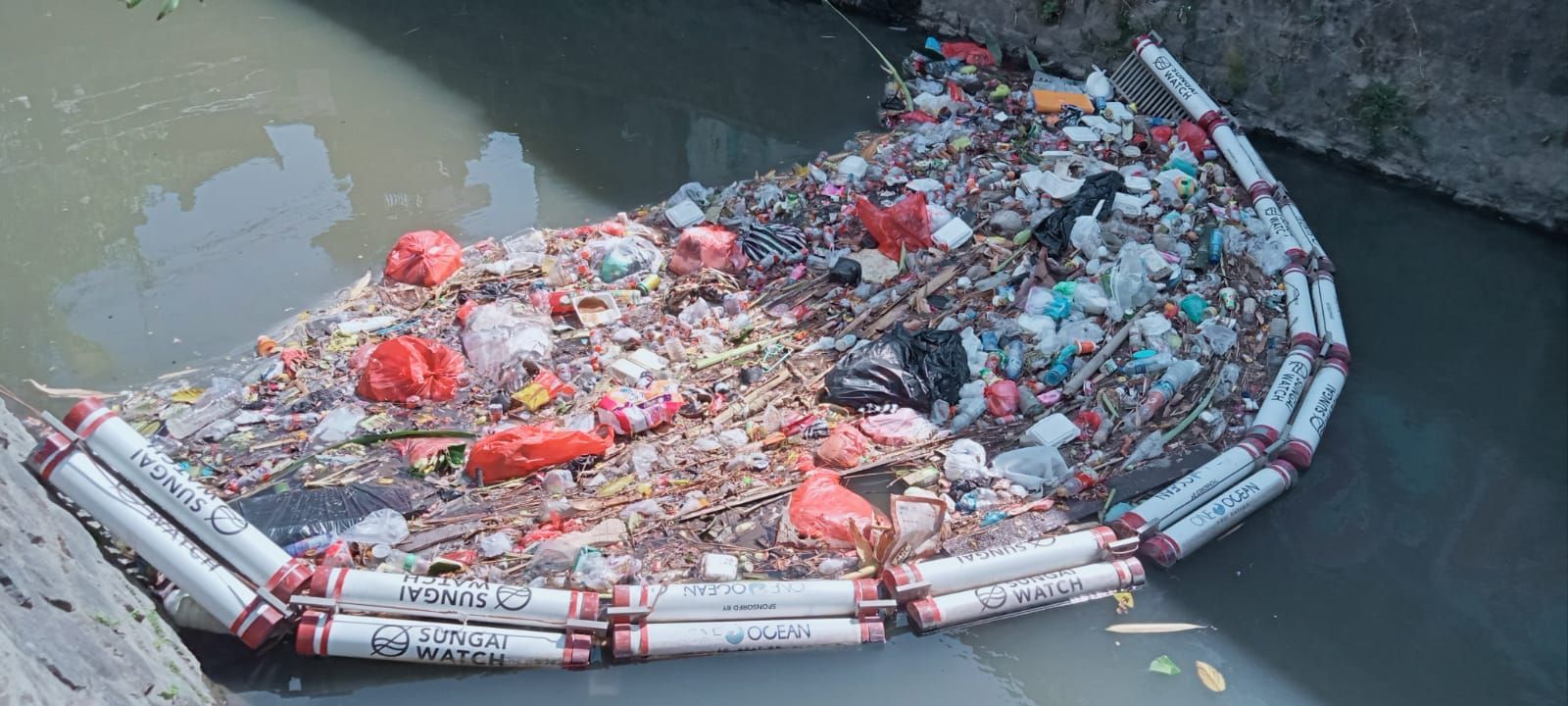
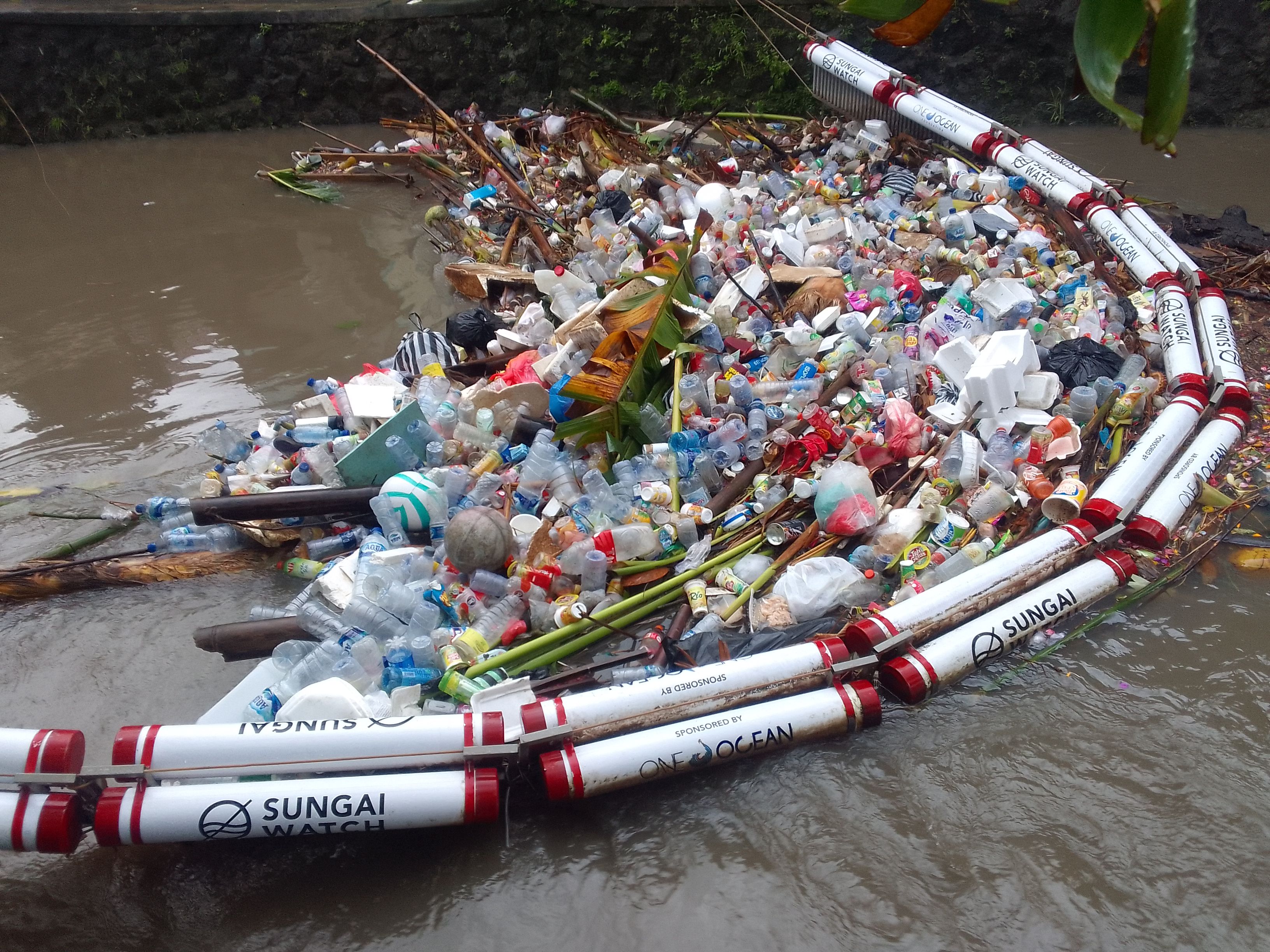
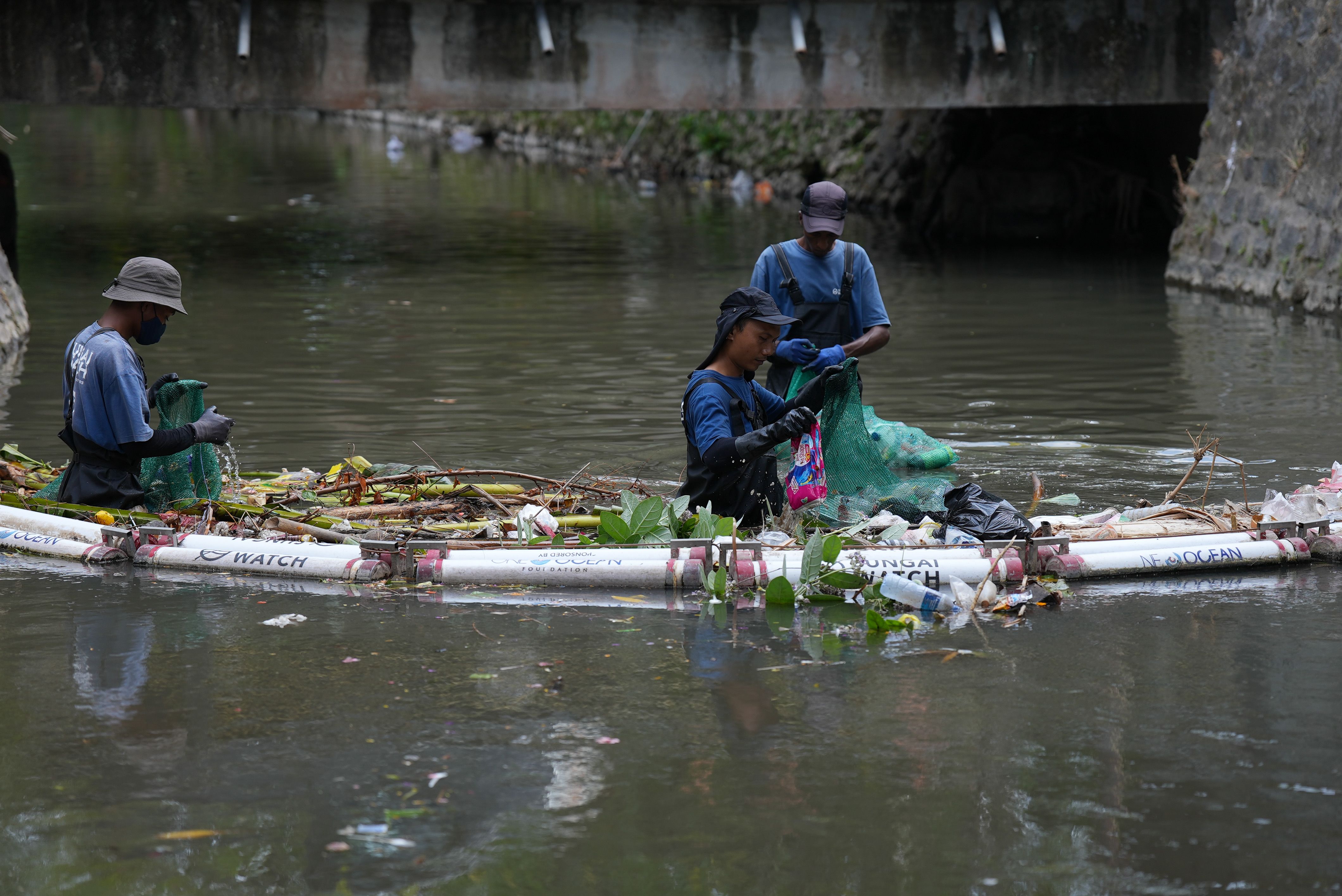
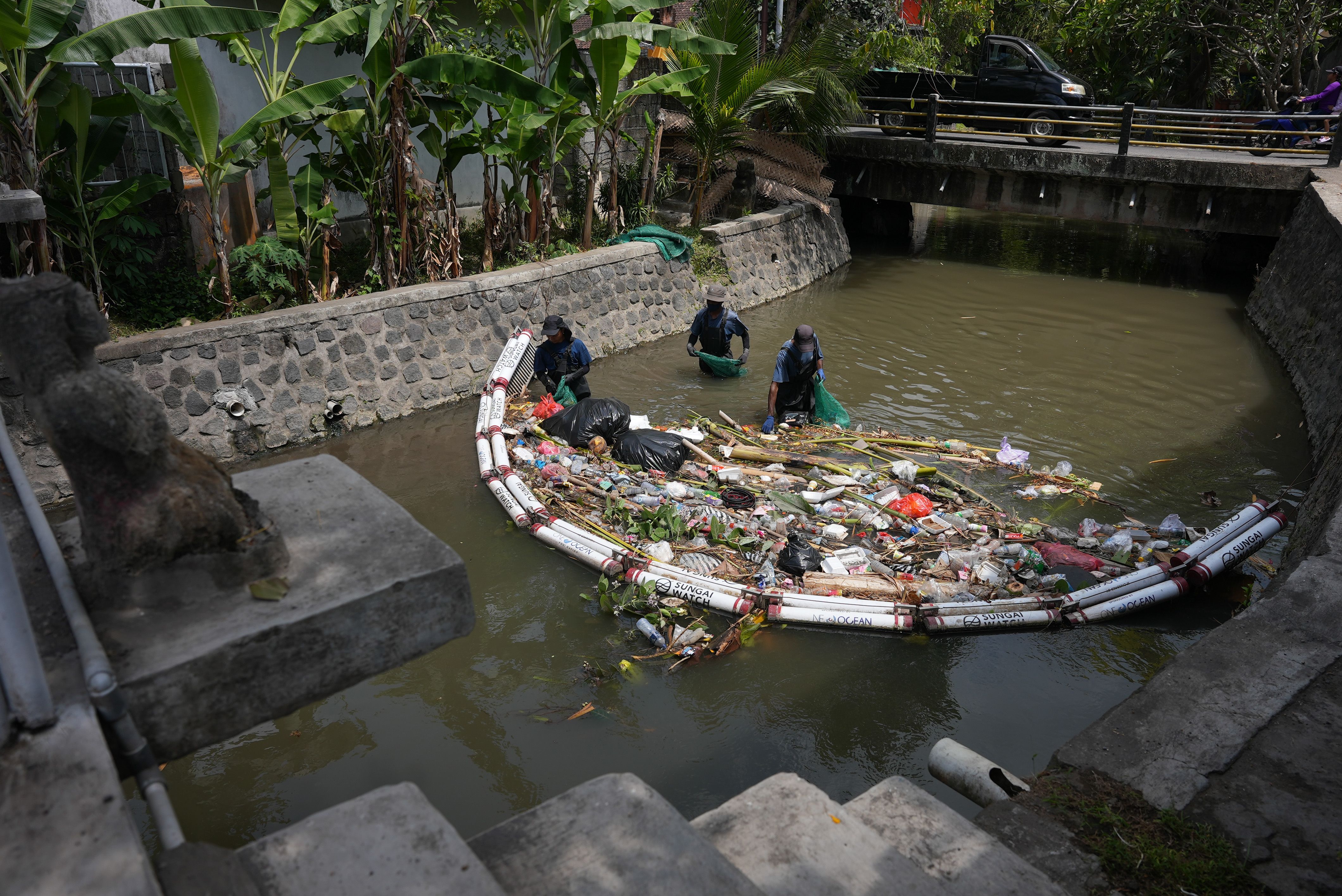
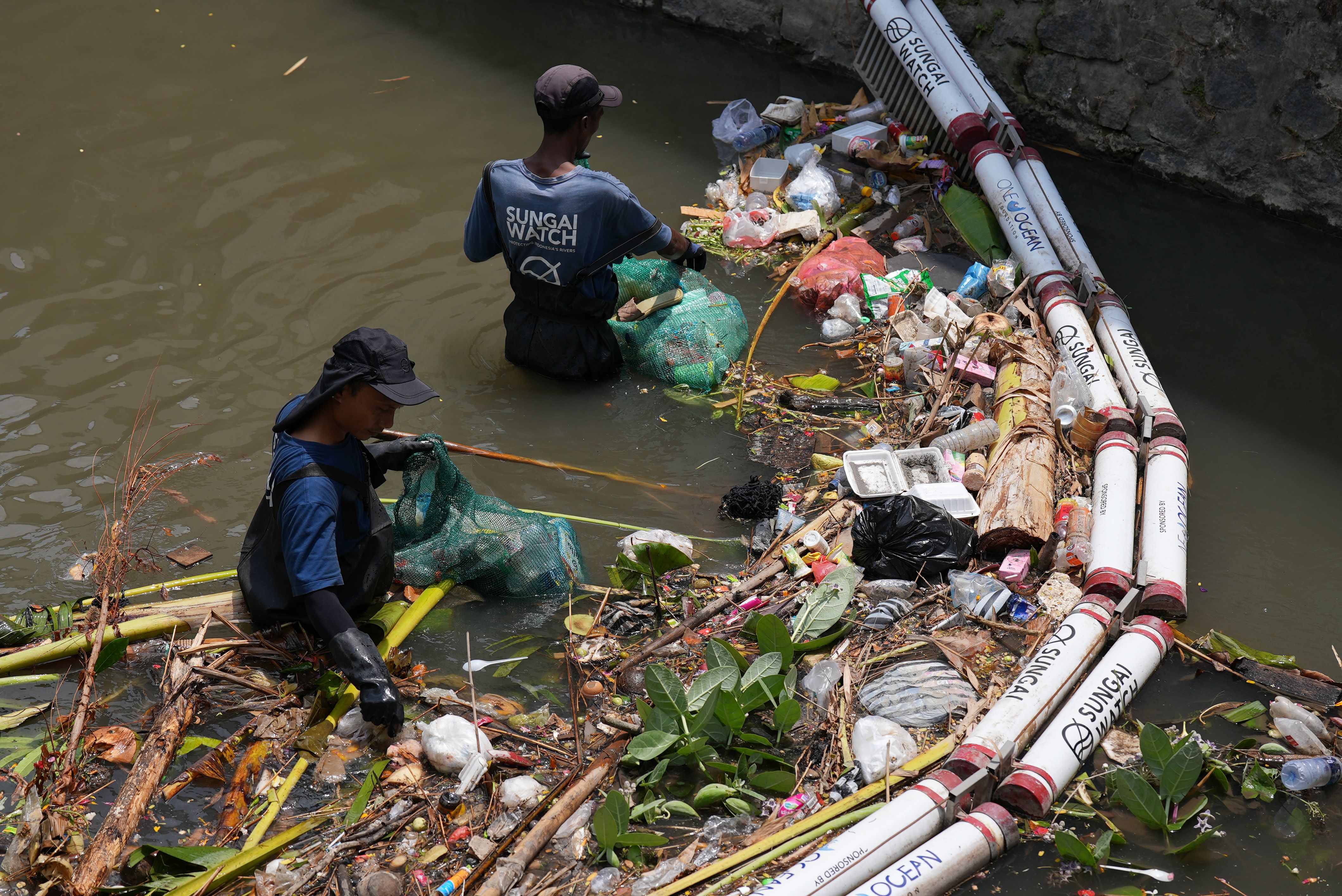
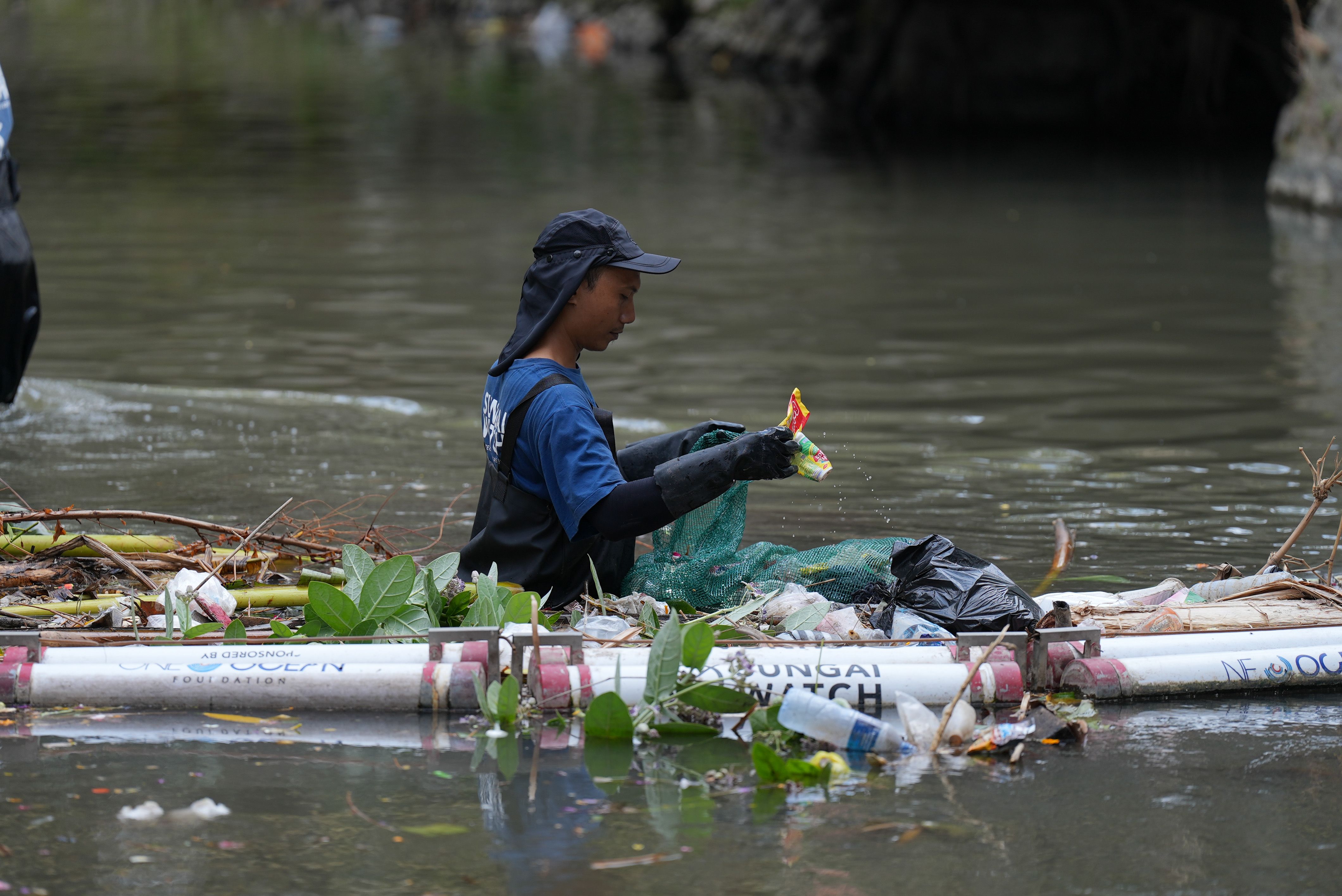
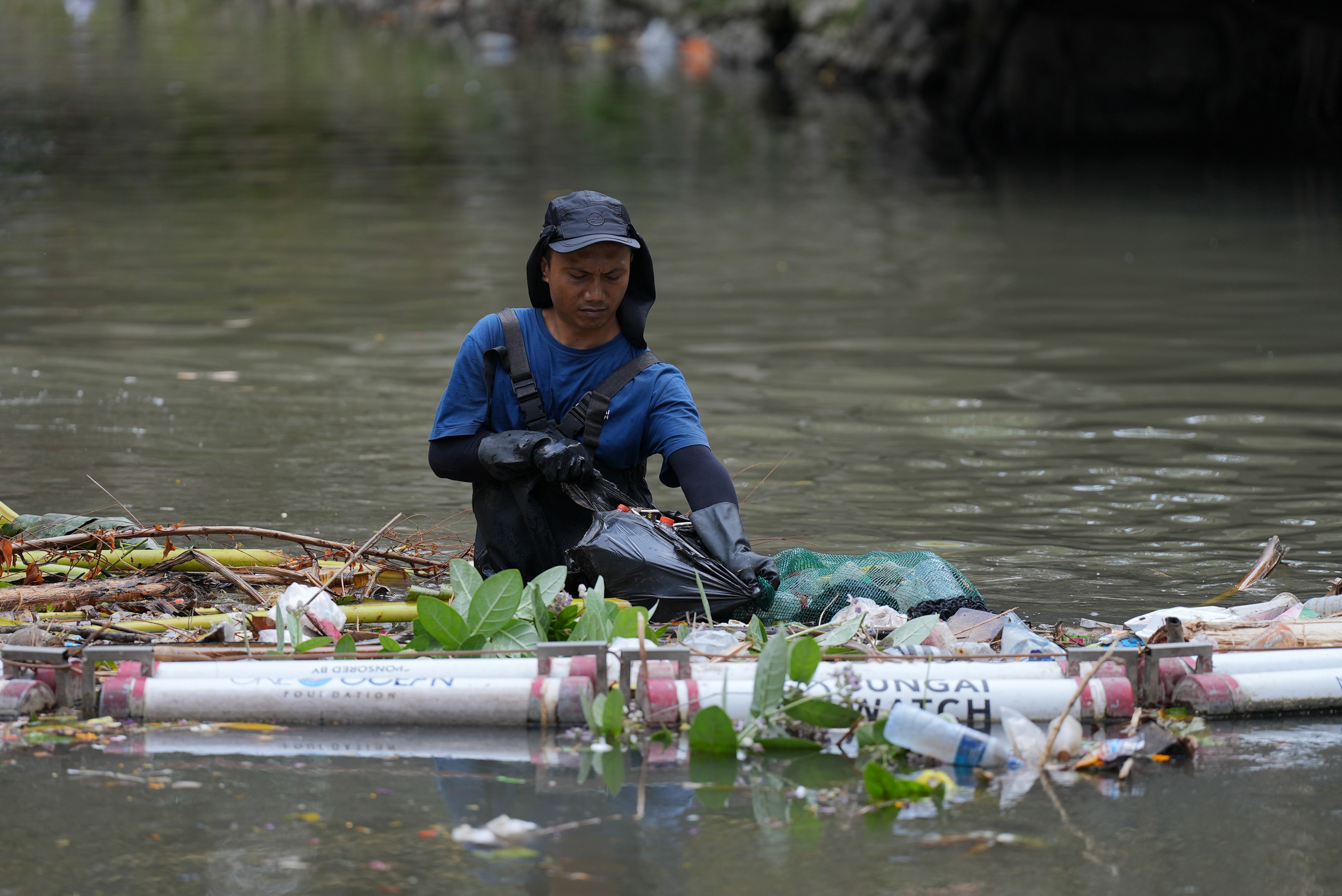
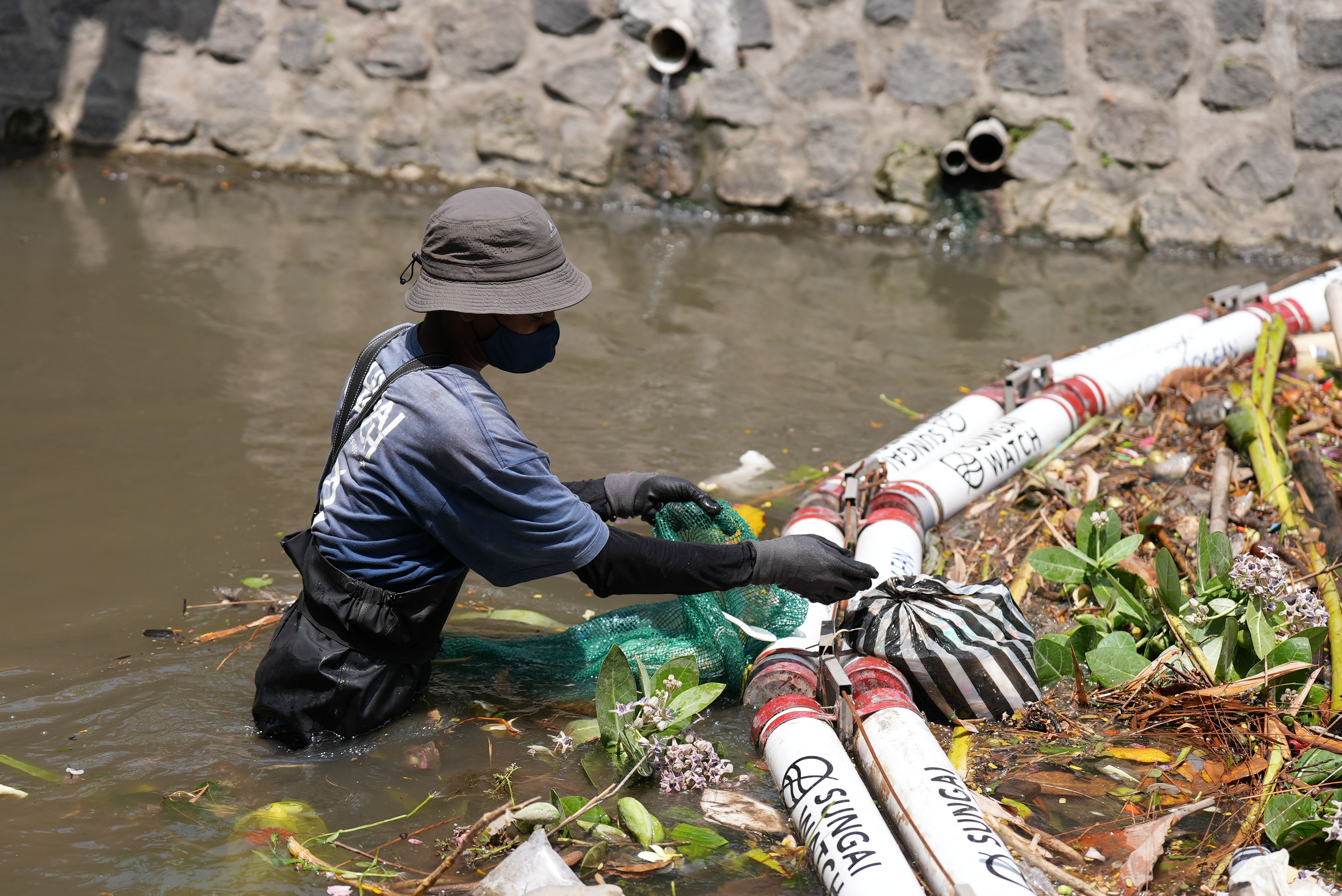
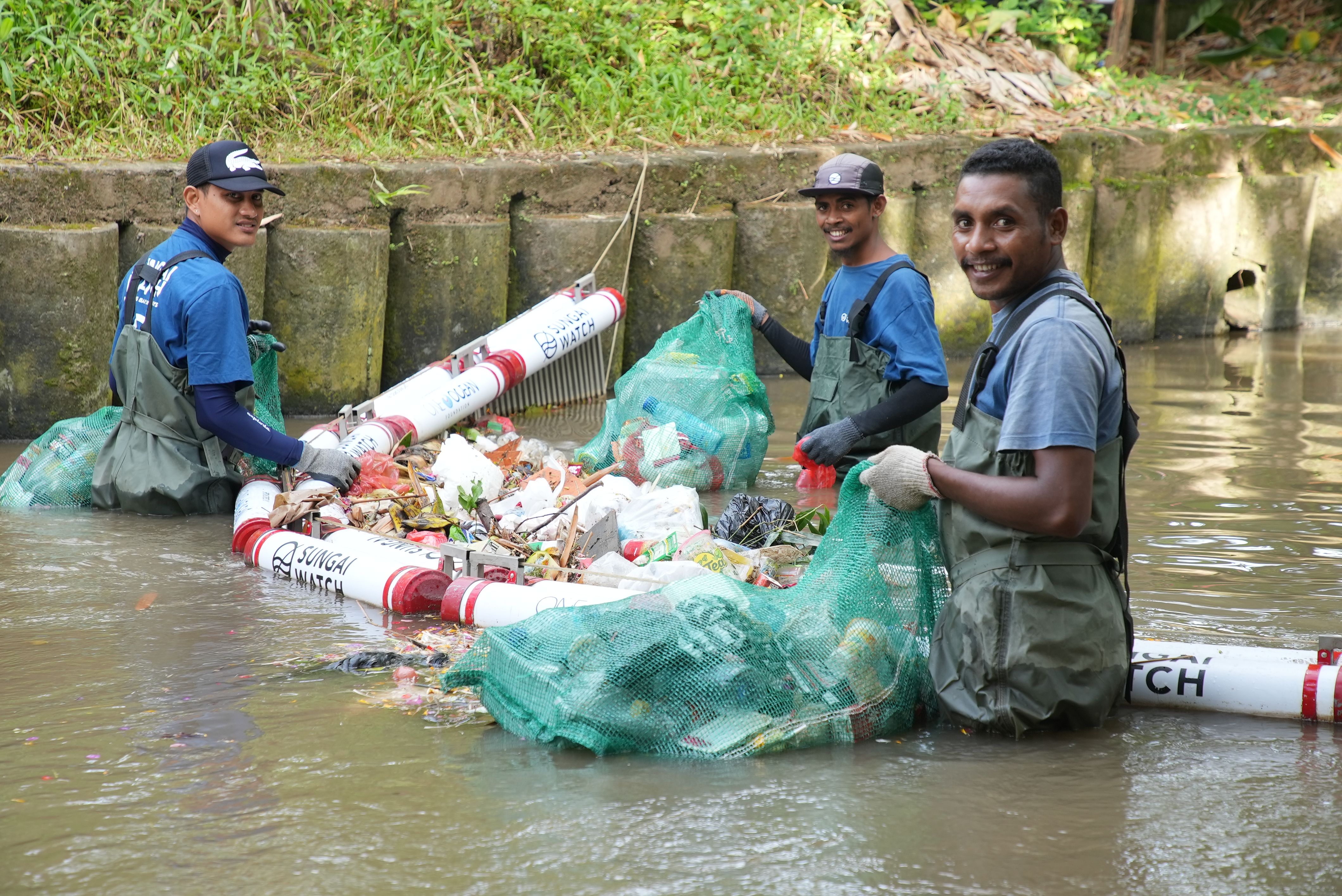
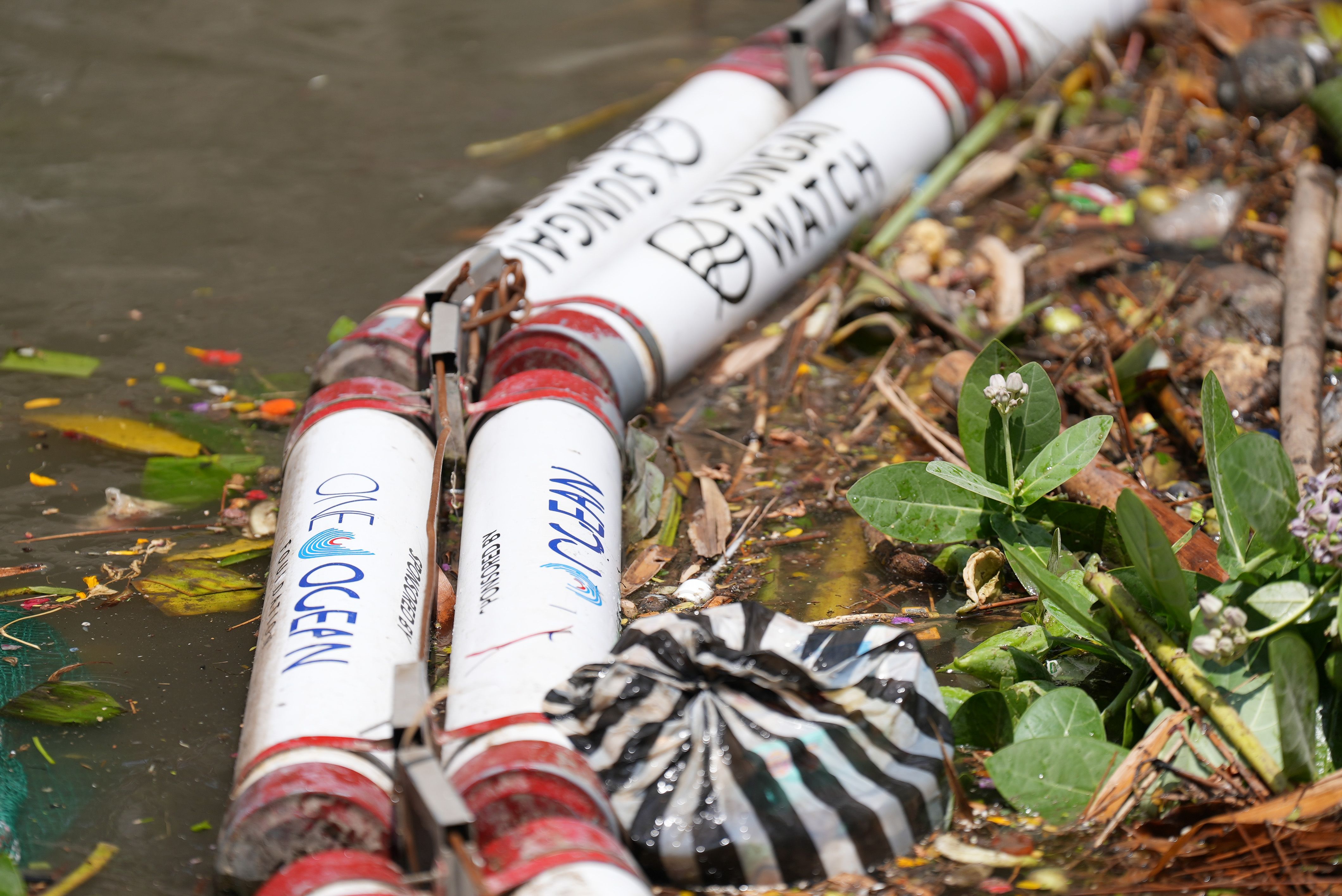
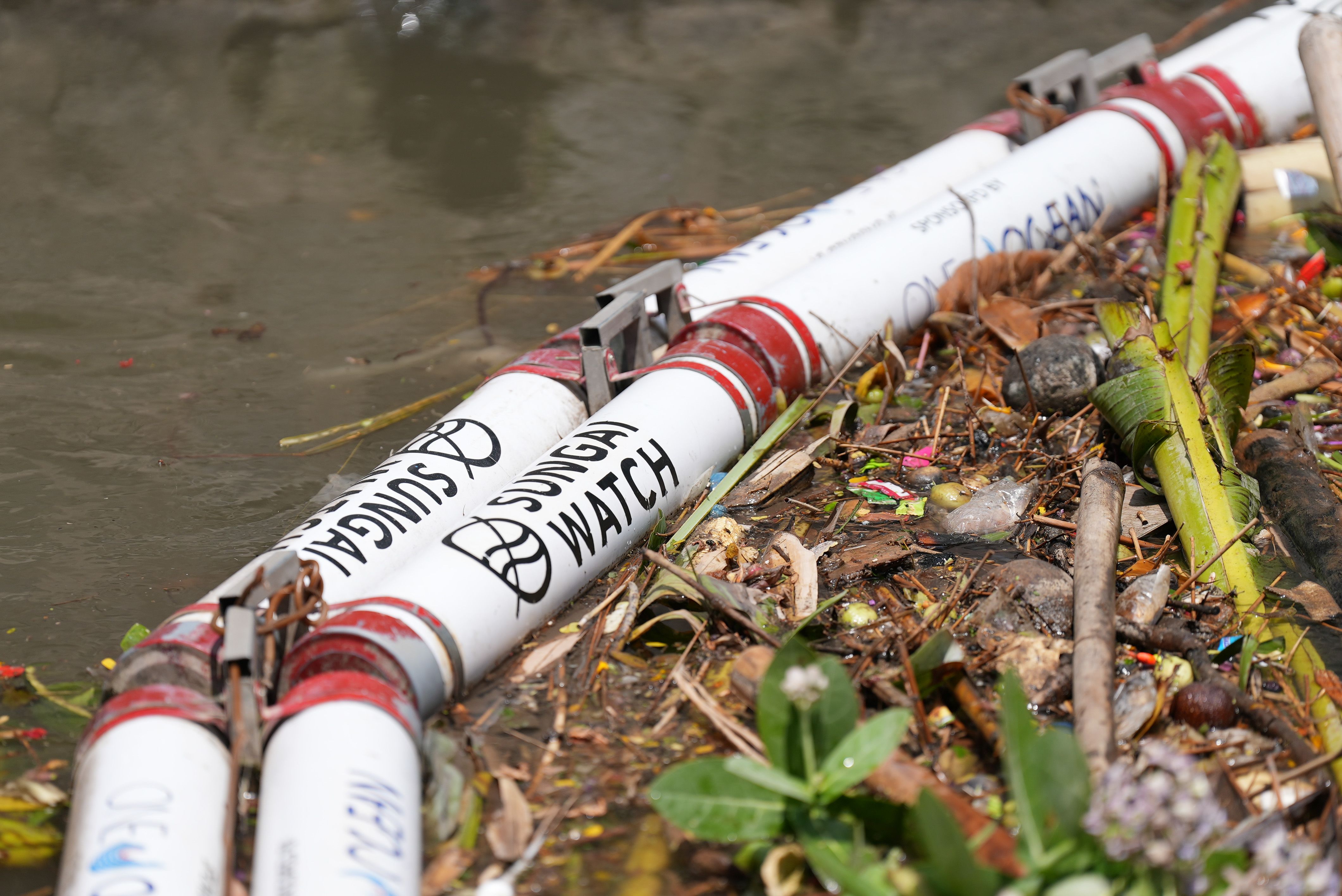
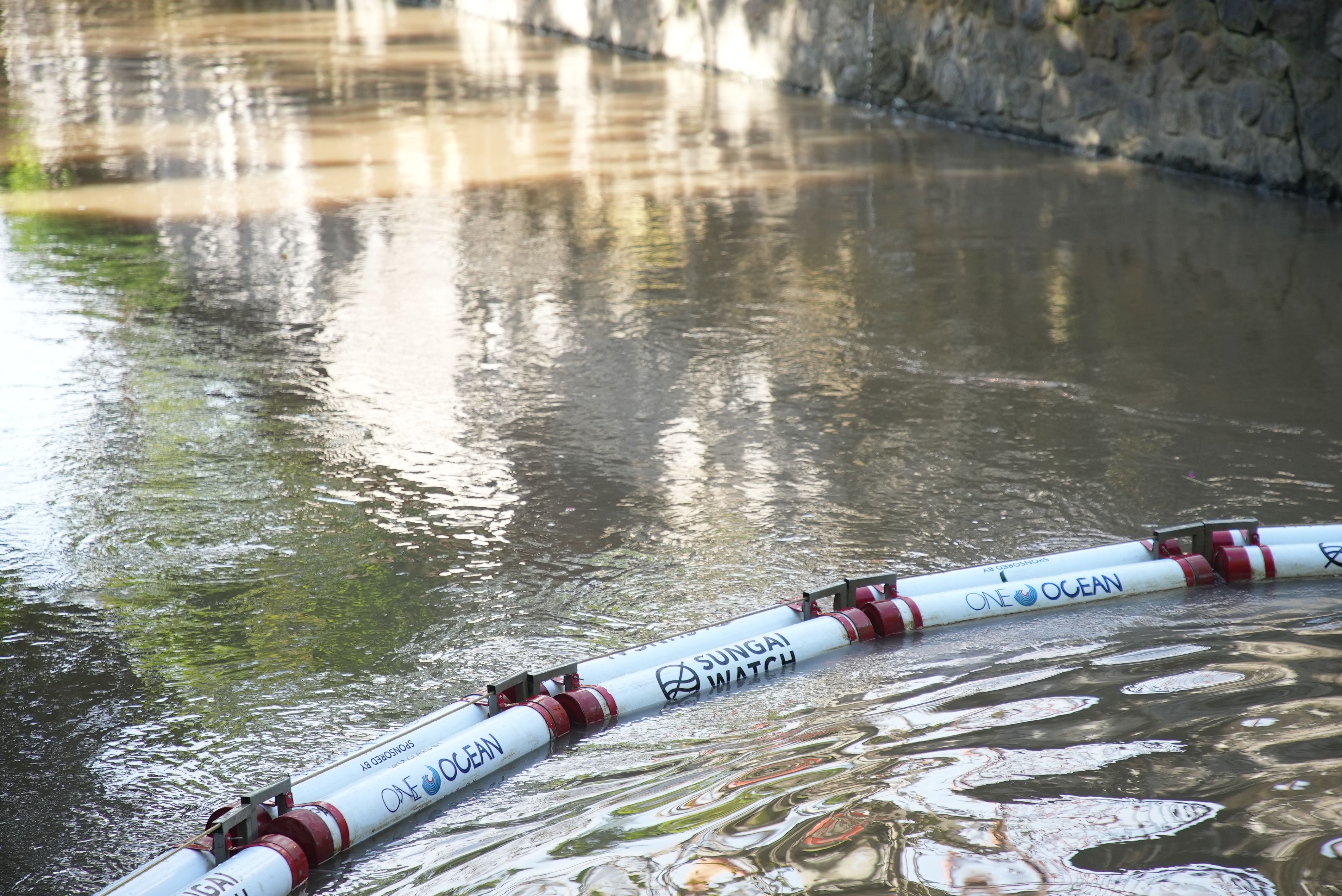












More Miles Less Plastic
More Miles Less Plastic is an environmental initiative that One Ocean Foundation has developed and implemented for the sailing world and specifically for sailing events, since 2022 on the occasion of the Mario Formenton Trophy.
For every mile traveled by each participating boat during selected sailing events, One Ocean Foundation commits to collecting plastic from the ocean through the aforementioned collaboration with Sungai Watch.
In 2023, the More Miles Less Plastic initiative crossed the ocean alongside the Foundation’s ambassador Ambrogio Beccaria: the ocean navigator carried out the project during the Transat Jacques Vabre, a double-handed race starting from Le Havre and finishing in Fort de France, Martinique.
More Speed Less Plastic
More Speed Less Plastic is an initiative developed in 2023 in collaboration with the Denmark SailGP Team of ROCKWOOL, leveraging what the Denmark SailGP Team does best: going fast on F50 sailing catamarans. For every km/h reached by the Denmark SailGP Team in each event of SailGP Season
3,10 kilograms of waste were removed from the ocean. In this way, the Denmark SailGP Team became the first plastic-positive sports team in the world. One Ocean Foundation also rewarded the highest speed of all teams in each SailGP event by removing plastic from the sea on behalf of any SailGP team that was the fastest on the water.
How fast can an F50 SailGP go? The F50 catamaran is one of the fastest sailboats, capable of reaching speeds close to 100 km/h using only wind power, thanks to foils, submerged wings that allow it to lift off the water like a hydrofoil. The current speed record is 99.94 km/h, set by the France SailGP Team in September 2022.
More Birdies Less Plastic
A similar concept is used with the More Birdies Less Plastic initiative, dedicated to the world of golf. Specifically, One Ocean Foundation commits to collecting 1 kg of plastic from the coast for each birdie made by young participants in the US Kids Venice Open competitions. In 2023, the 400 participants achieved a total of 1,582 birdies, thus preventing 1.5 tons of waste from ending up in the ocean.
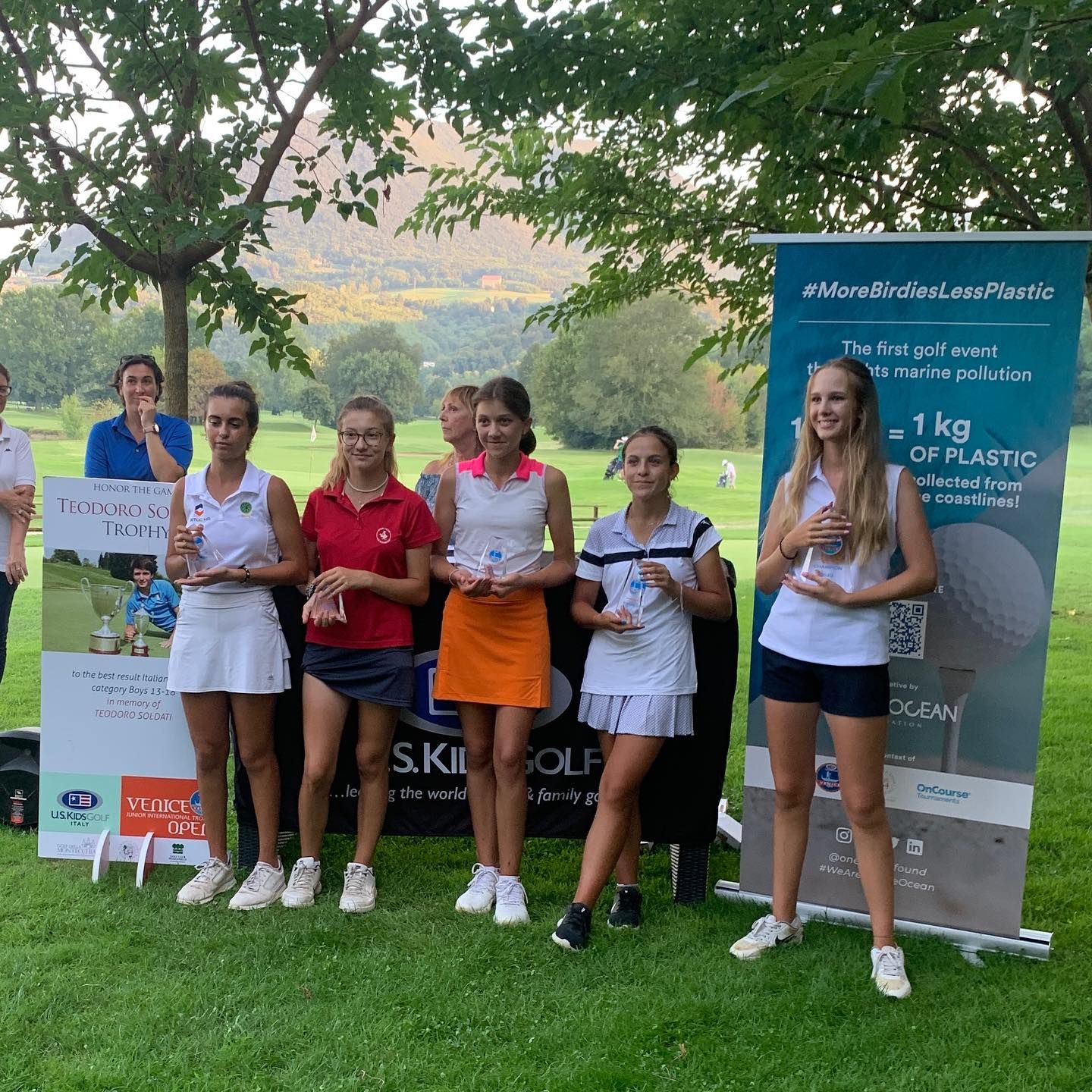
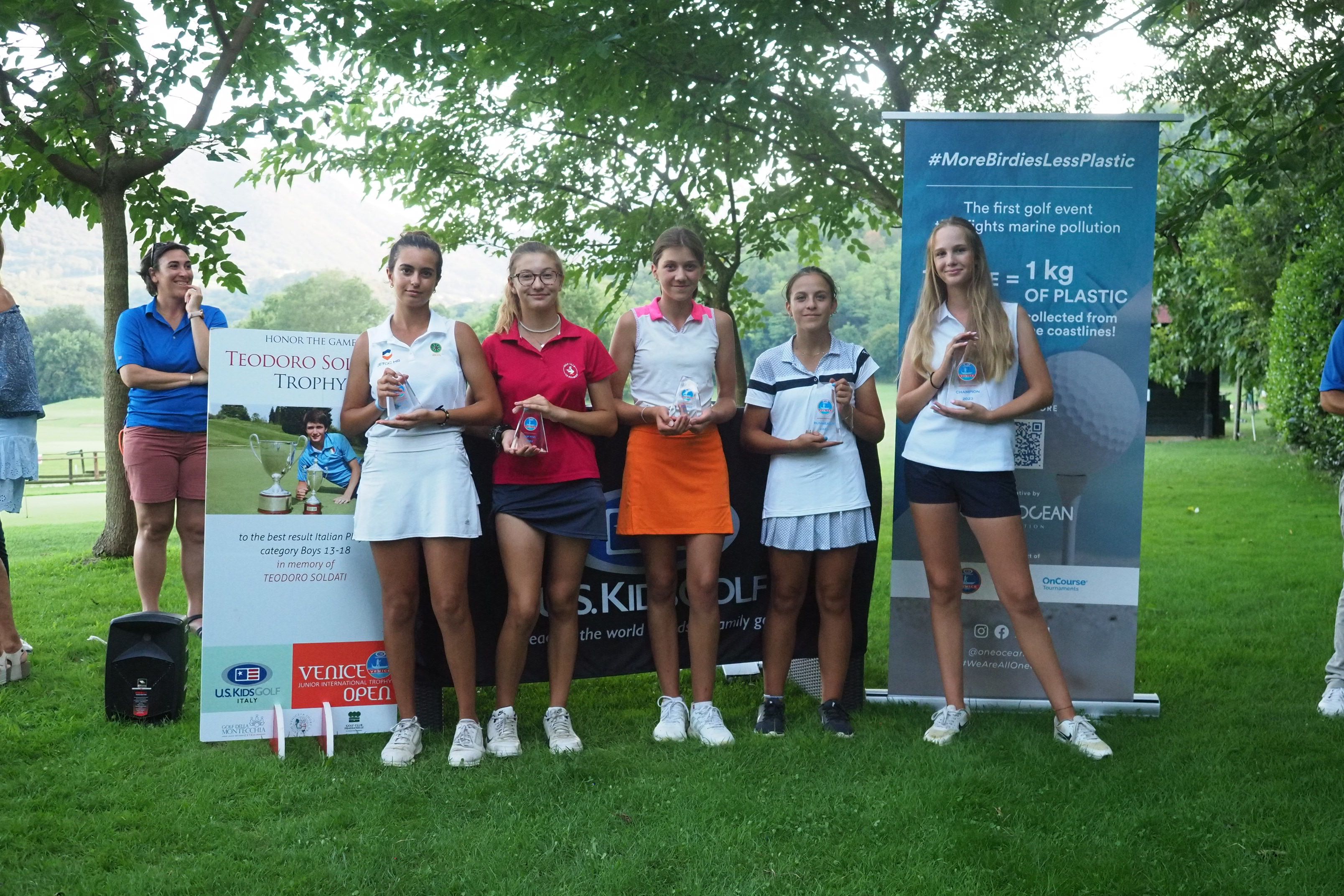
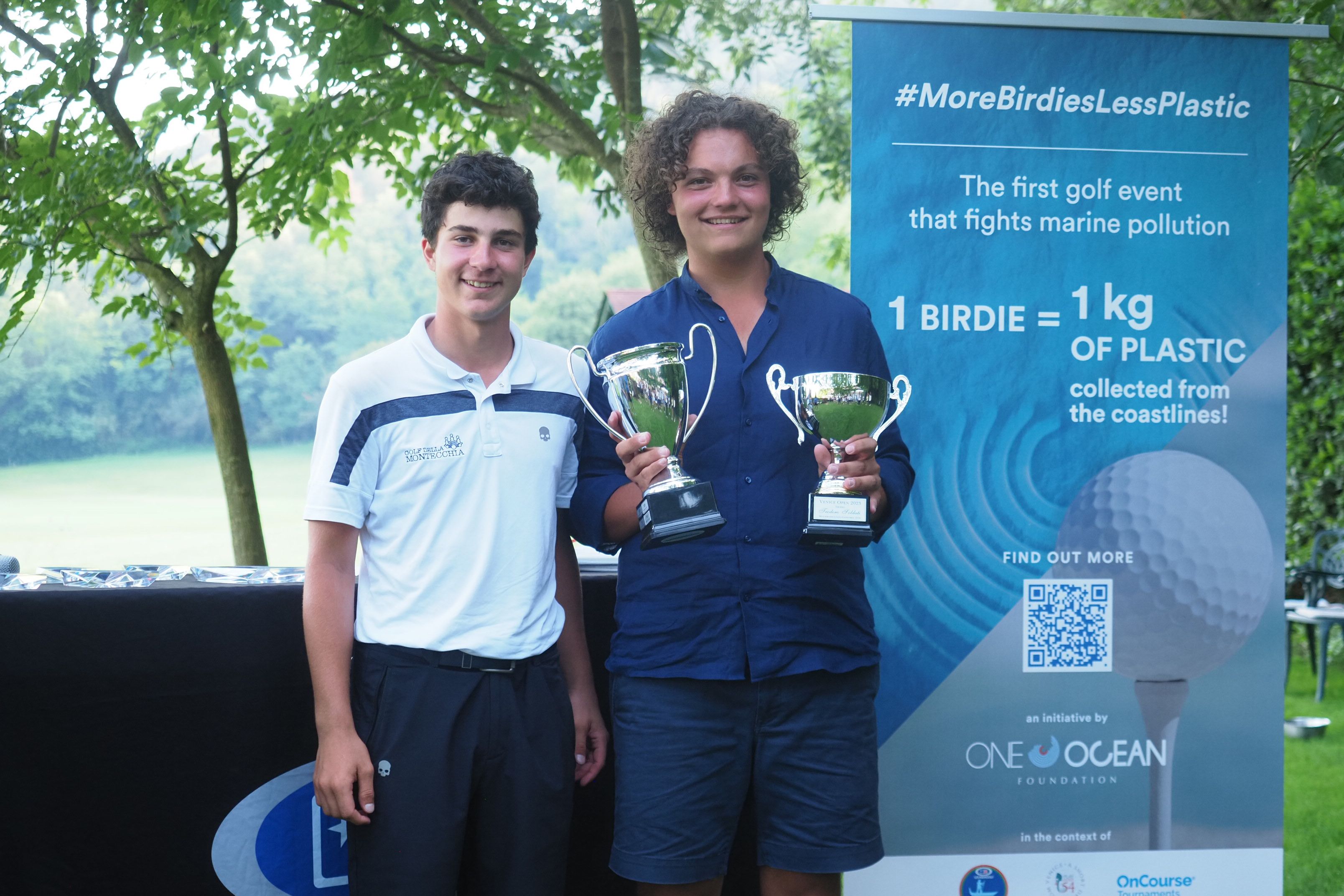
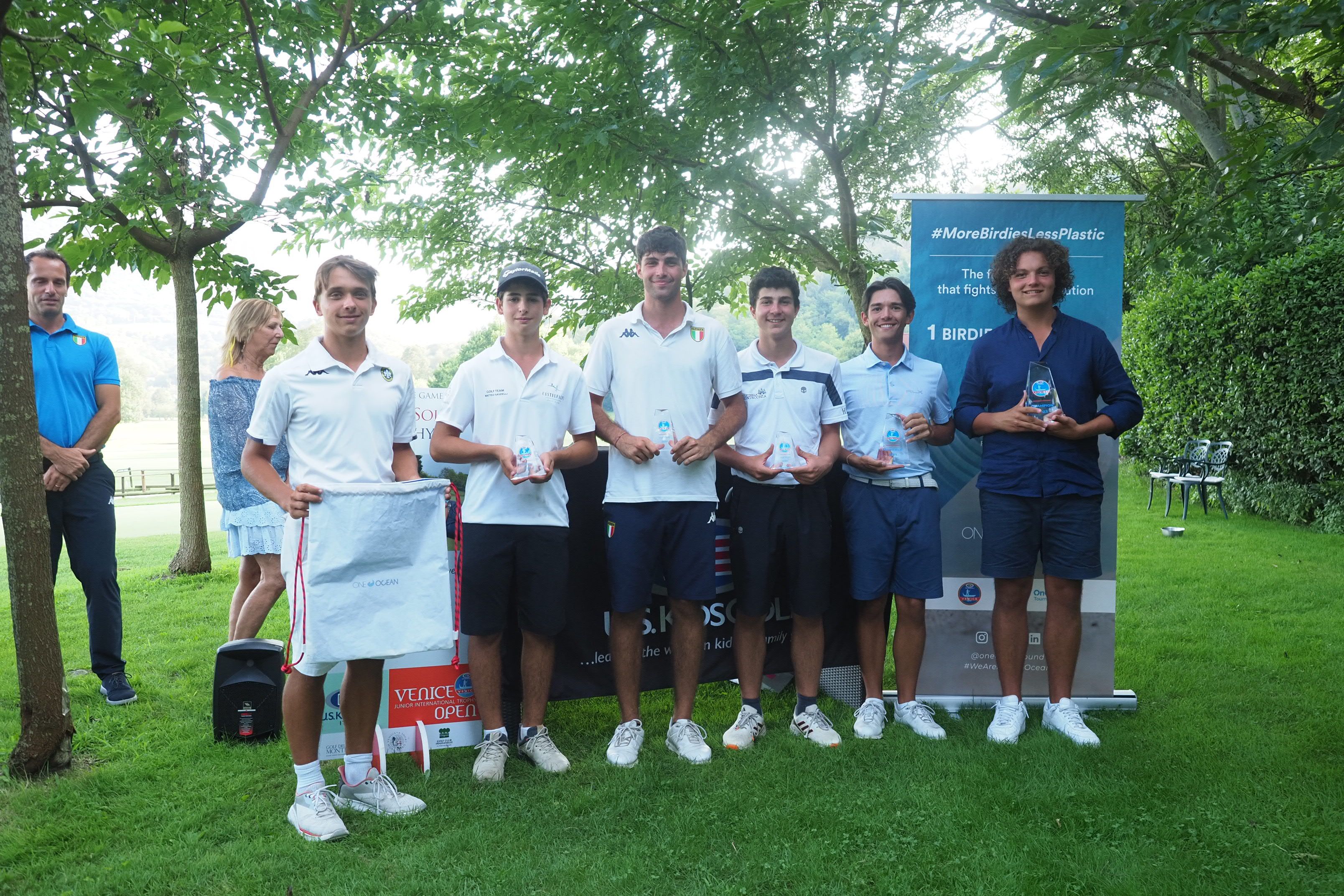
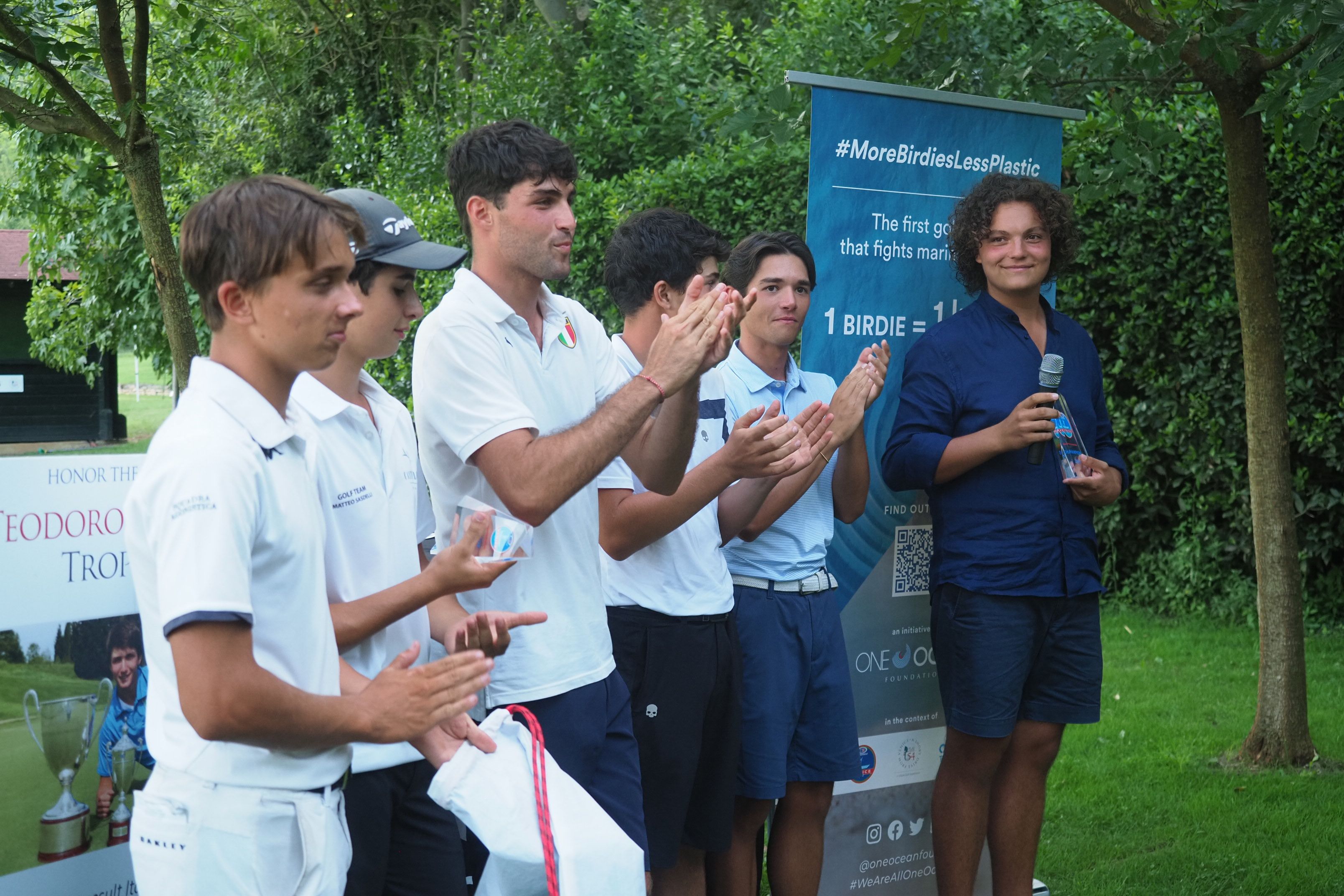

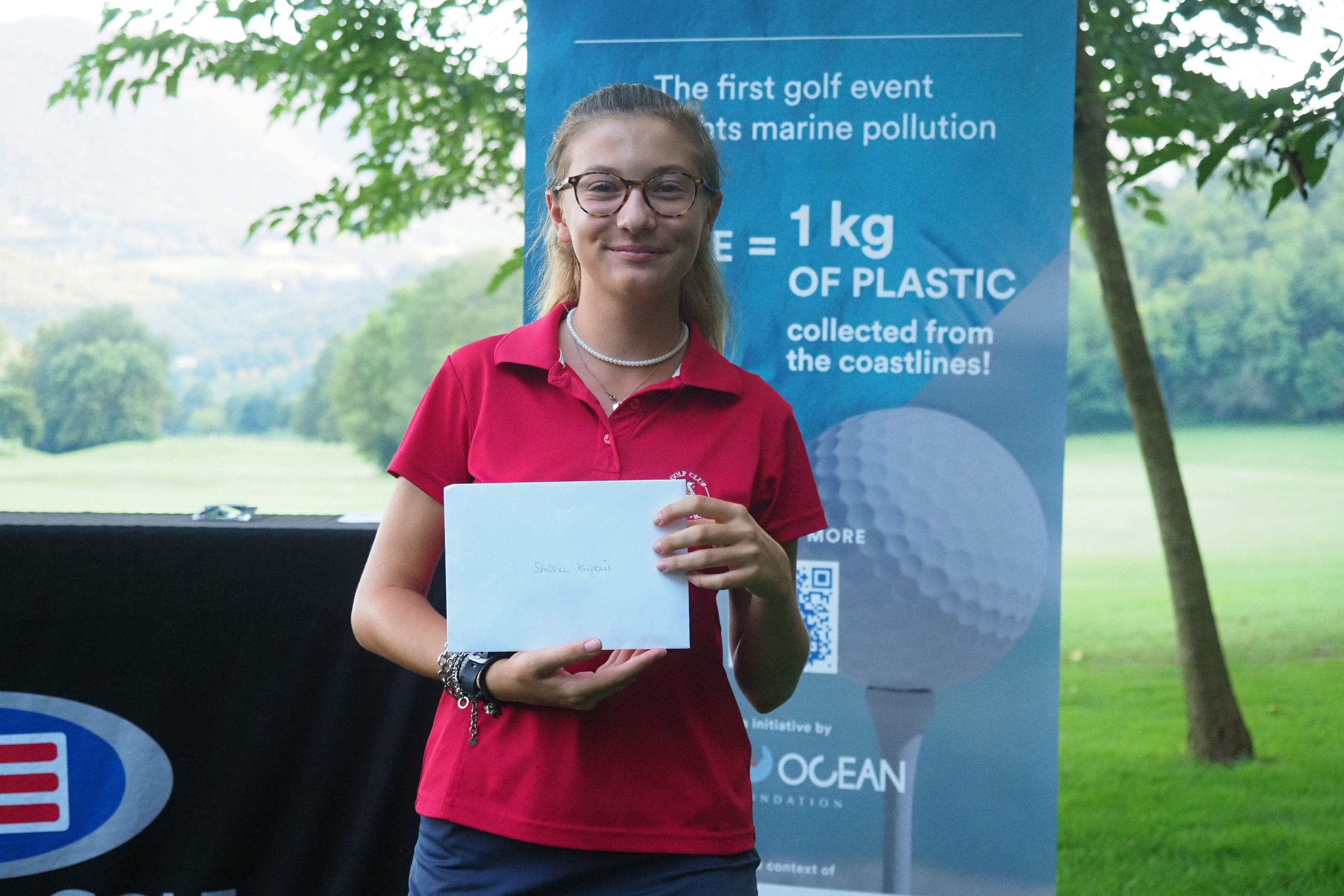
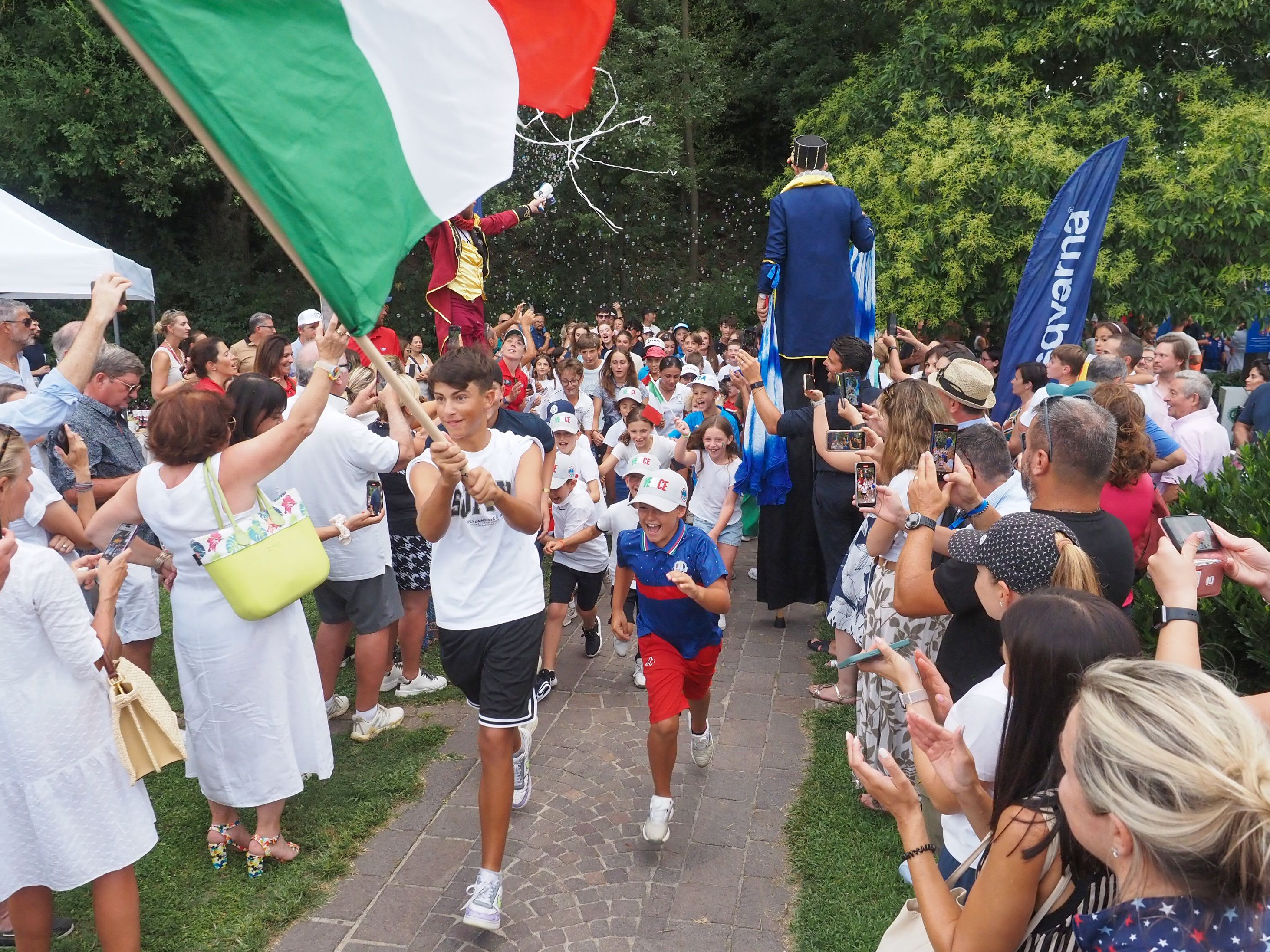
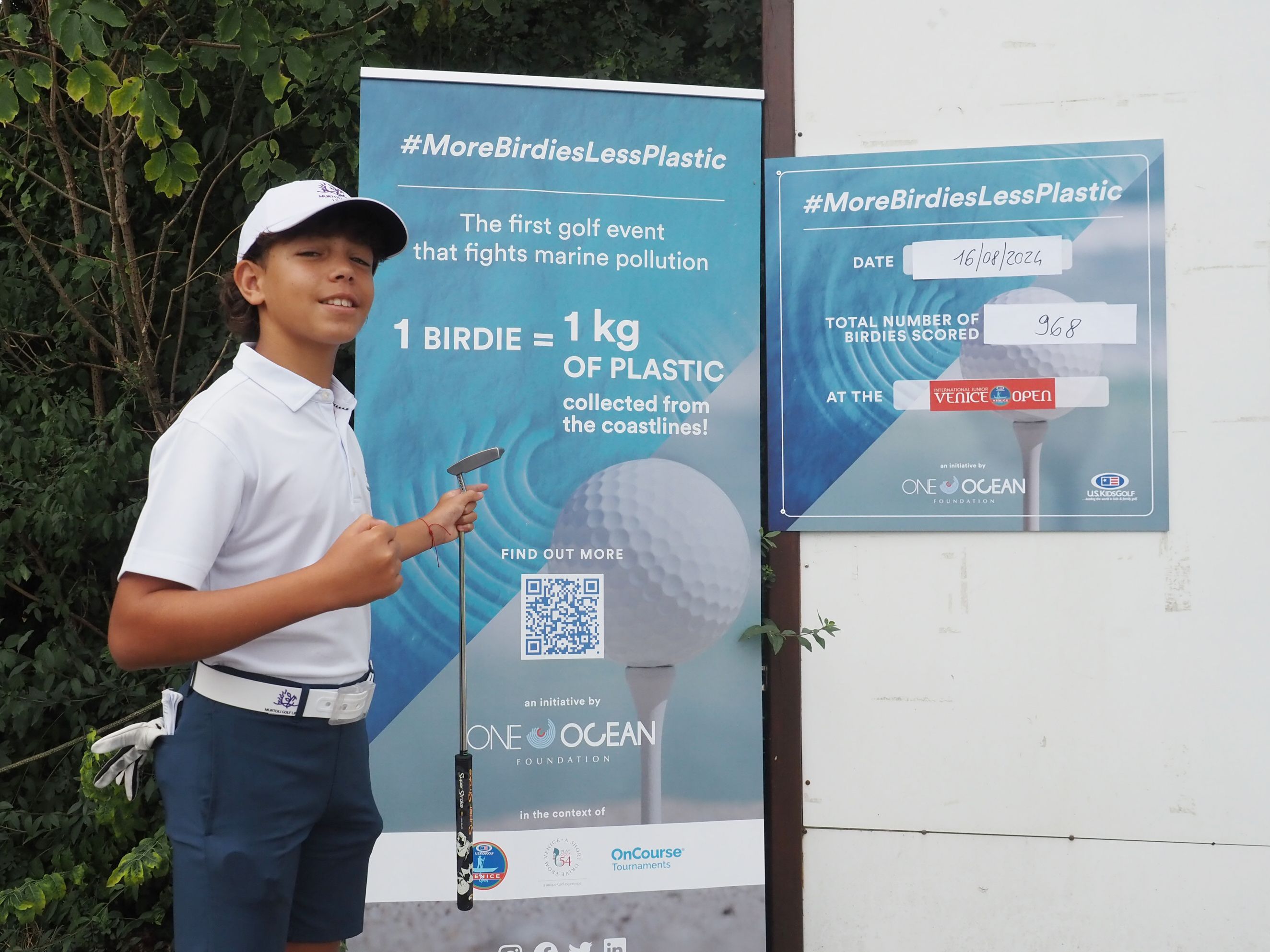
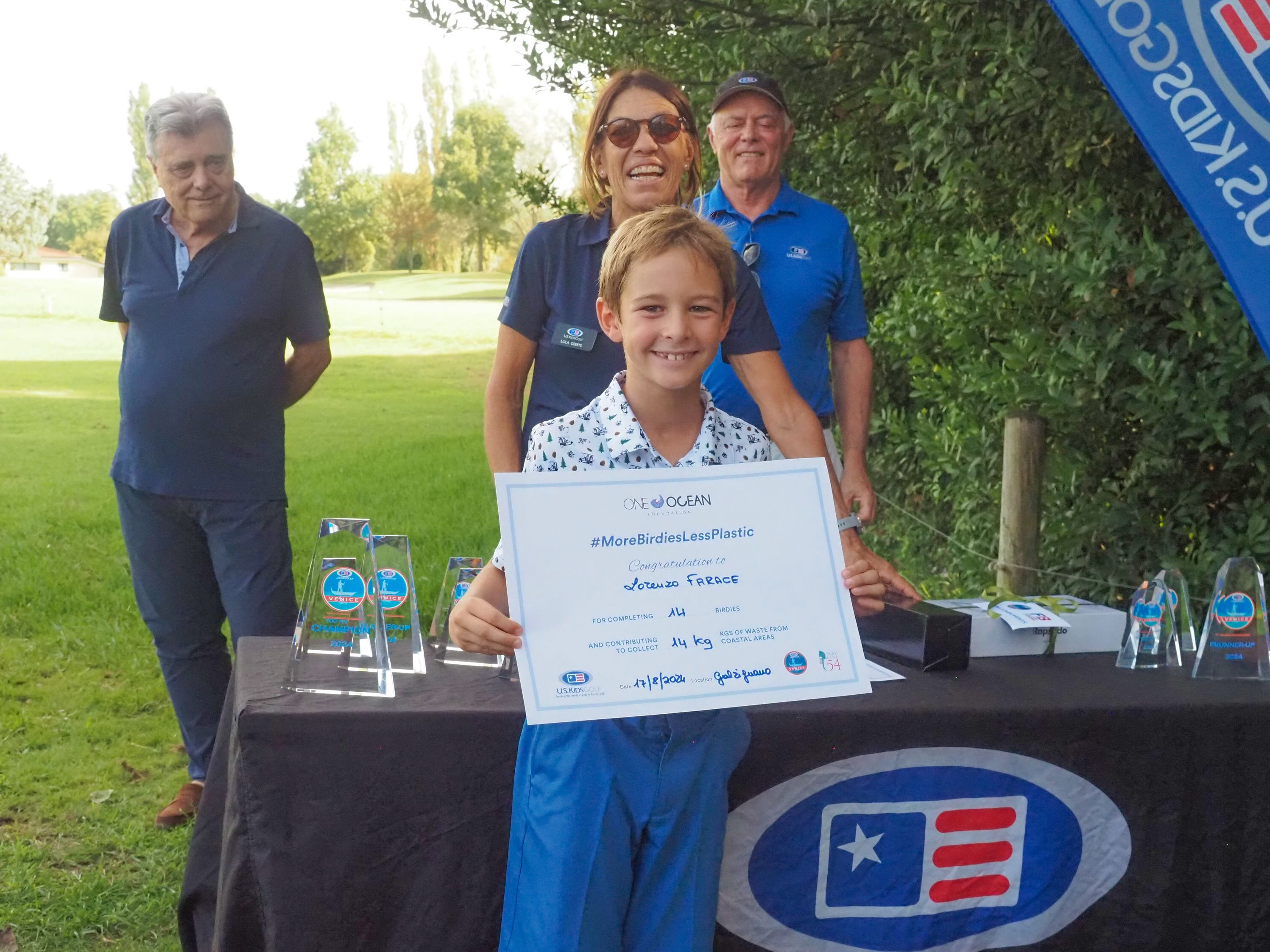
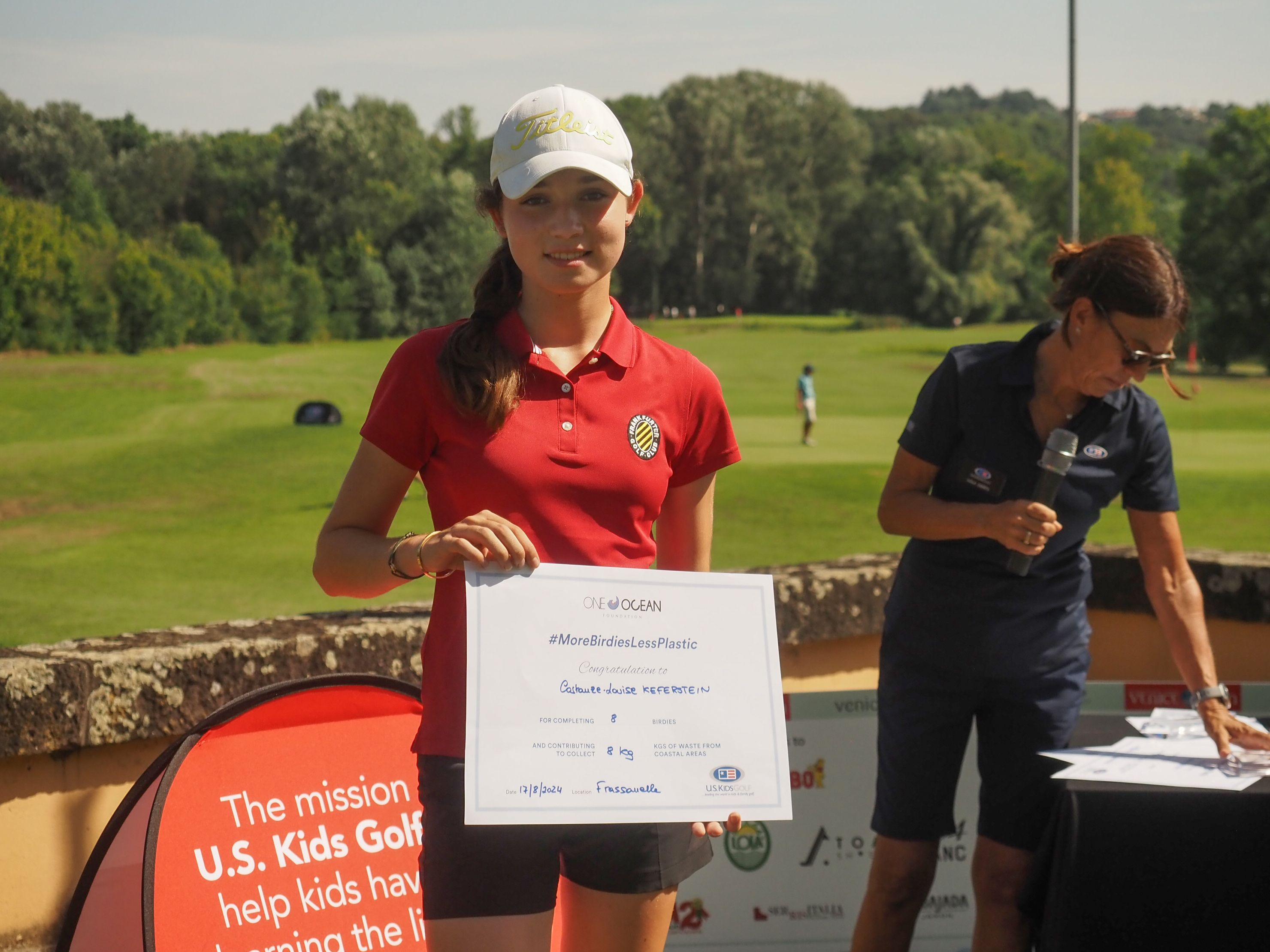
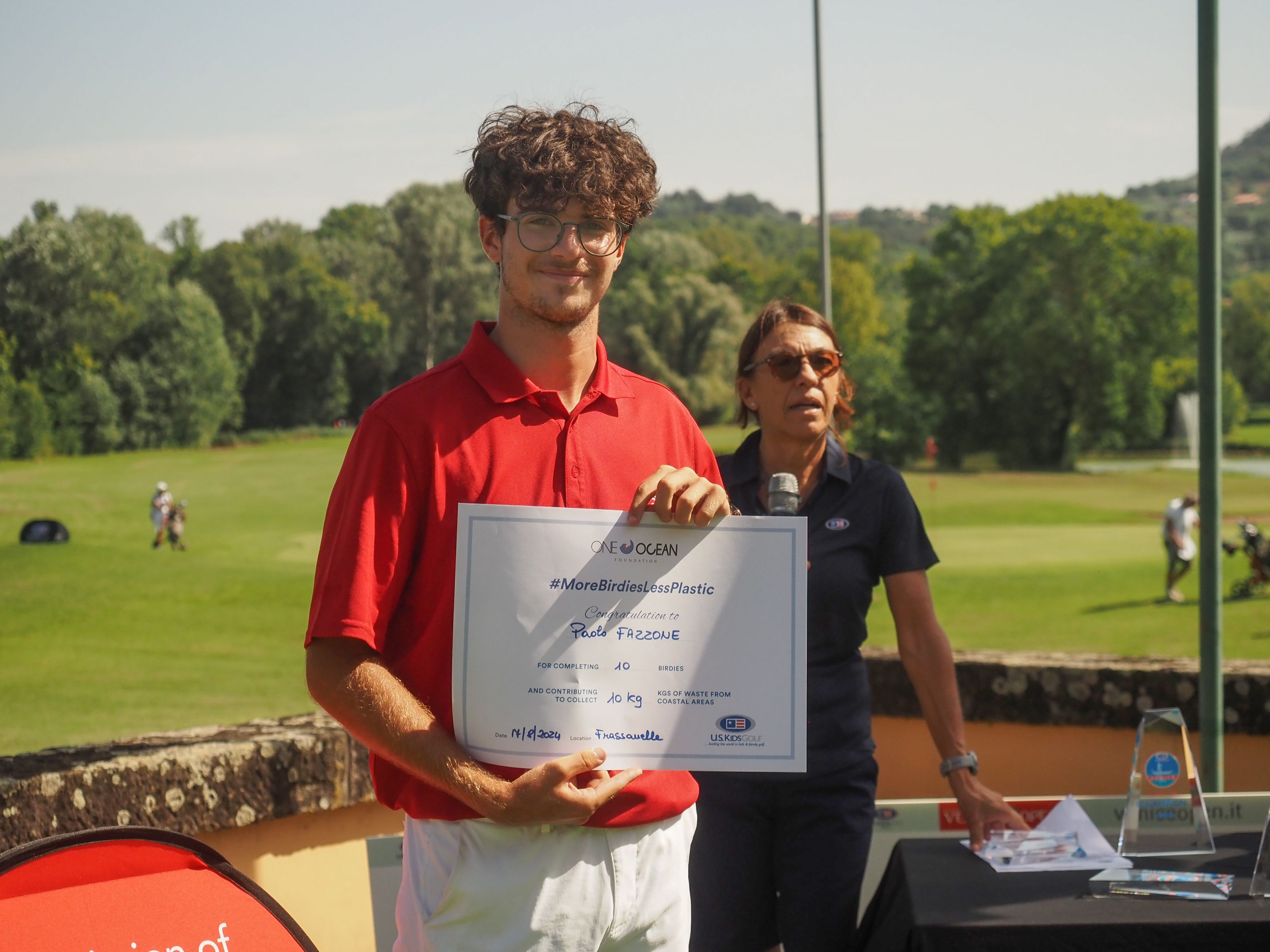












Beach cleaning
Beach cleanups are an effective way to directly engage people with the issues aspecting the sea, such as pollution from plastics and microplastics.
These activities not only help remove waste from beaches but also raise awareness among participants about the devastating impact of these materials on marine ecosystems.
One Ocean Foundation regularly organizes clean-up initiatives throughout the year, involving volunteers, companies, and local communities to take concrete action in protecting the ocean.
Participating in these events offers an opportunity to understand the urgency of the environmental crisis and play an active role in safeguarding the sea!
News
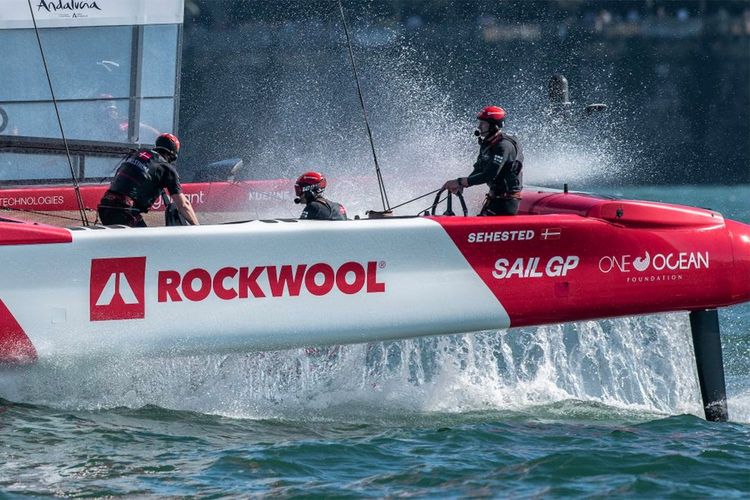
More Speed Less Plastic: 1.5 tons of waste will be collected from the ocean at the Singapore SailGP
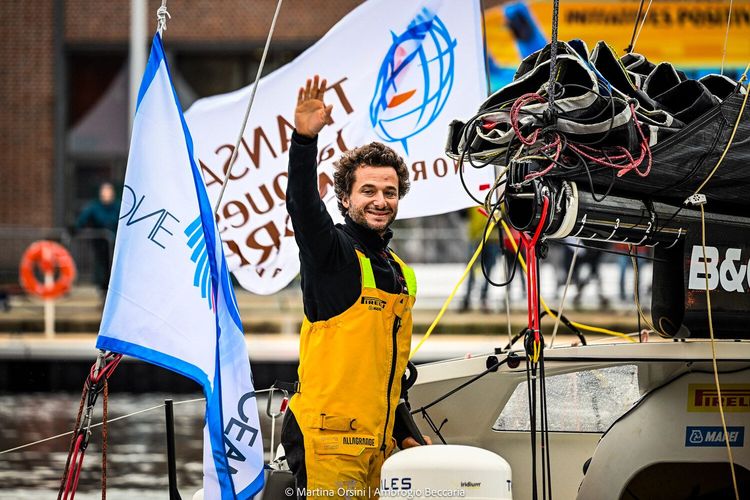
More Miles Less Plastic crosses the Atlantic ocean with Ambrogio Beccaria
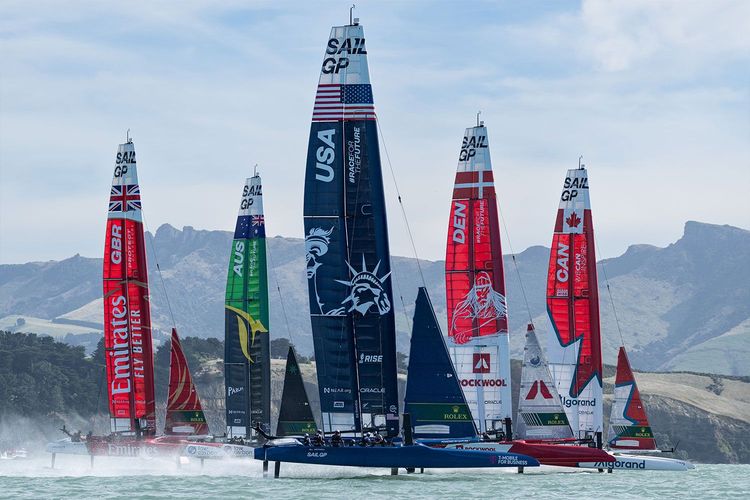
More Speed Less Plastic reaches a major target in New Zealand
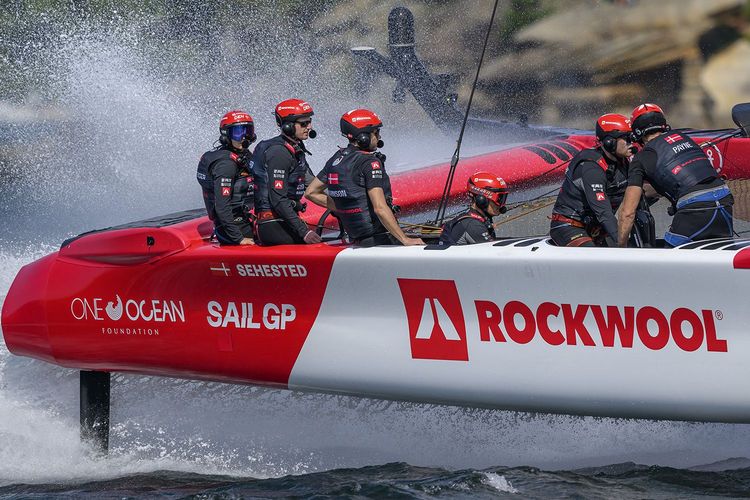
Almost two tonnes of ocean-bound waste diverted through More Speed Less Plastic
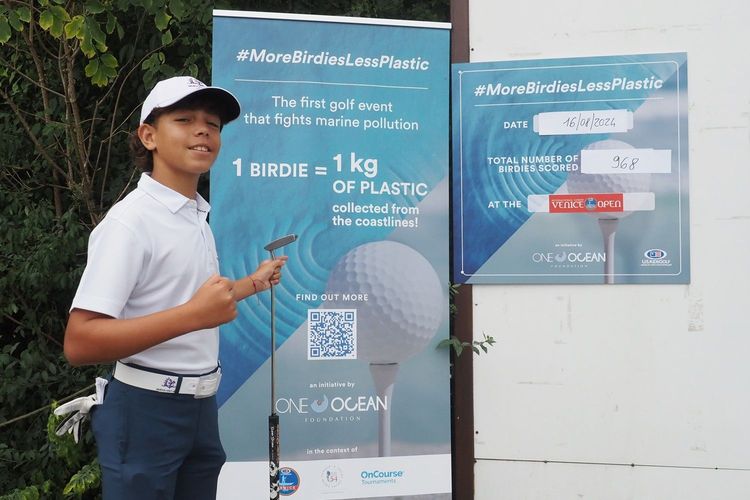
More Birdies Less Plastic Initiative: great success at the US Kids Venice Open 2024
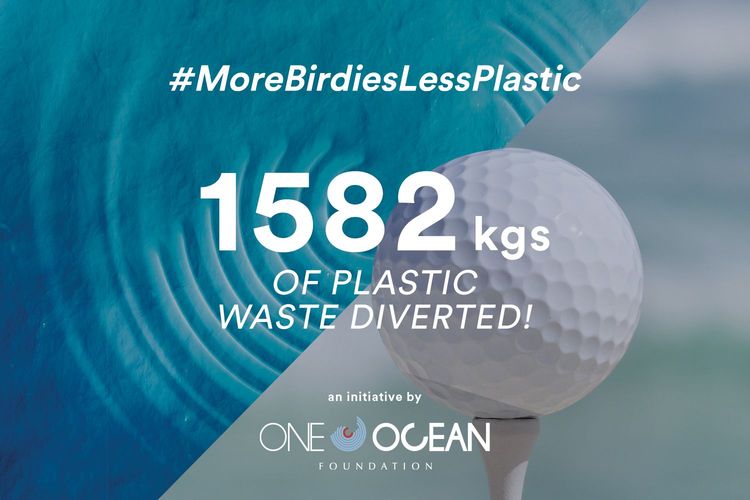
More Birdies Less Plastic: One Ocean Foundation brings sustainability on the golf course
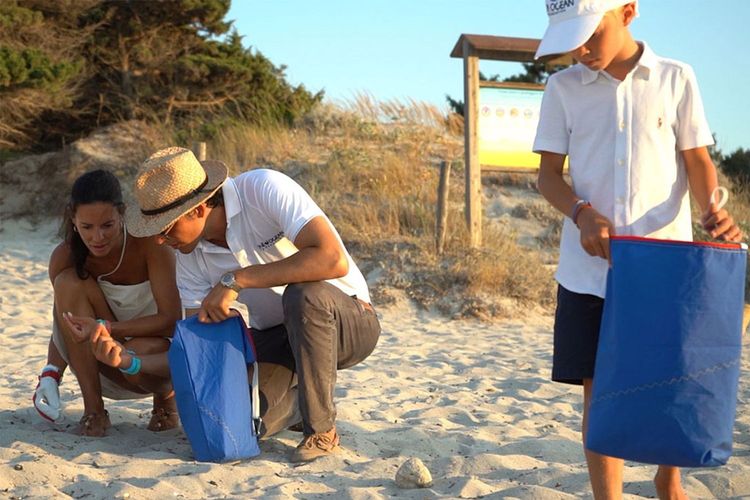
Searcular Beach Harvest
